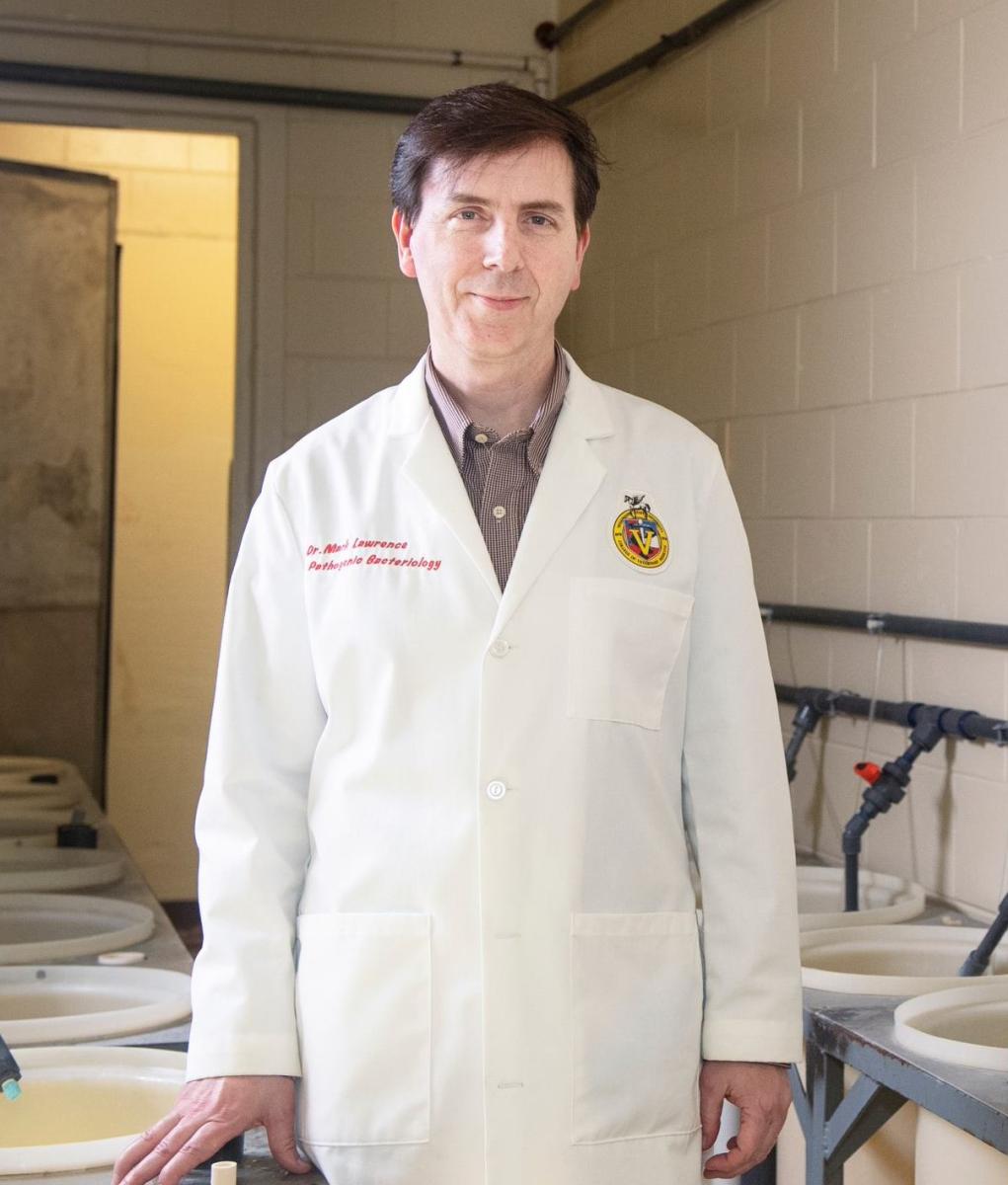Feeding the Future
Mississippi State University researchers are making strides to protect livelihoods and ensure food security for communities reliant on catfish farming, a cornerstone of the U.S. aquaculture industry. The research paves the way for healthier aquaculture practices and sustainable food systems by using genetic methods to develop vaccines against devastating catfish diseases.
Led by Dr. Mark Lawrence, a William L. Giles distinguished professor at MSU’s College of Veterinary Medicine, the MSU research team developed a dual vaccine to provide protection against Edwardsiella ictaluri, causing enteric septicemia of catfish (ESC) and Aeromonas hydrophila, causing motile aeromonas septicemia (MAS). These diseases are a significant threat to Mississippi’s channel catfish industry, which accounts for more than half of U.S. production, providing jobs and affordable protein for countless Americans.
“This groundbreaking research has the potential to directly benefit farmers and communities,” Lawrence said. “Improving the health of farm-raised catfish not only strengthens local economies but also contributes to a more secure food supply for the nation.”
The vaccine development, funded by the U.S. Department of Agriculture, was enabled by first conducting fundamental research to sequence the genomes of Edwardsiella ictaluri and Aeromonas hydrophila. Targeted genes were knocked out in the Edwardsiella ictaluri genome to construct ESC-NDKL1, a live attenuated vaccine for ESC. Genes from Aeromonas hydrophila were then inserted in the live attenuated vaccine strain to construct ESC-NDKL1-MAS. Testing of ESC-NDKL1-MAS showed that the vaccine protects catfish against both diseases with a single dose.
Beyond its immediate implications for aquaculture, the research offers broader insights into vaccine development for bacterial pathogens affecting both aquatic and terrestrial hosts. E. ictaluri is closely related to pathogens like E. coli, Salmonella, and Yersinia, which cause significant human illnesses. The research shows that dual vaccine approaches for these human pathogens is also a viable strategy.
Lawrence’s work extends beyond disease research. As director of MSU’s Global Center for Aquatic Health and Food Security, he leads initiatives addressing hunger and malnutrition in developing nations across Africa and Asia. These efforts promote sustainable aquaculture and fisheries practices to bolster food security and reduce global malnutrition.
With over $70 million in research funding, 160 peer-reviewed publications, and seven patents, Lawrence is a driving force in aquatic health innovation. His achievements recently earned him the 2024 SEC Faculty Achievement Award, recognizing his contributions to teaching, research, and global health initiatives.
“This research not only benefits Mississippi’s aquaculture industry but also empowers communities worldwide to build sustainable and resilient food systems,” Lawrence said. “By improving fish health and aquaculture practices, we’re helping to create a future where food security is attainable for all.”
Lawrence was recently elected to a leadership role on the Feed the Future Innovation Lab Council, where he will help global experts address pressing issues in food security.
Through his leadership and dedication, Lawrence continues to make a lasting impact on both local and global communities, ensuring healthier aquatic ecosystems and stronger food security for generations to come.

